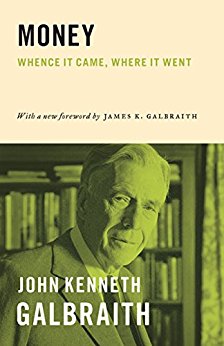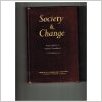It is sad but true that three-quarters into the twentieth century and over fifty years after the publication of James Joyce’s Ulysses and T.S. Eliot’s The Waste Land, we still have no term but ‘modern’ to describe the kind of literature associated, above all, with these two writers…
Archives
Sept-Oct 1977 . VOLUME 2, NUMBER 5Clearly, abstract research must continue irrespective of how little of it is applied in practice. The Muslim way of life, not necessarily Islamic as at least two of the above publications amply prove, has also been subjected to considerable theological interpretation and sociological research, but the findings have probably been…
Editorial
Is it possible for a scholar to specialize in two countries as dissimilar as India and Israel? Perhaps a journalist might achieve fame by writing on many separate countries but it is rare for area specialists to stray from their own country or region. The authors of 0 Jerusalem and Freedom at Midnight exemplify journalists whose popular political histories…
If nothing satisfies a man so much as the esteem of one’s friends and colleagues, then Gorwala must indeed be a very happy person; the articles brought together in this volume felicitating him on his 75th birthday eloquently express…
Since the early 50s, coinciding with the setting up of the ‘national’ governments in many of the Third World countries, and perhaps consequent to it, several thousand intensive surveys have been made of single villages in those countries. This concern of academics in the ‘developing’ nations with rural realities…
Dr. Joshi, Chief Executive of Walchandnagar Industries Ltd., has written what could pass as an ethical base to the Janata blueprint of the sixth Five-Year Plan. The reviewer chooses to so regard this work, for the treatment of the economic content in the planning process that the author seeks to address is rather flimsy…
1977
When, oh! when, will Indian publishers approach textbook production with both the intelligence and sensitivity that it demands and the sincerity and dignity that it deserves? It is especially discouraging to see a slipshod, erratic text from a prestigious publishing house like Orient Longman.
Dr. Nagaraja Rao is well-known to the reading public in Indian philosophy by his numerous learned as well as popular articles, reviews, books and lectures. The present work offers a consolidated presentation of the panorama of Indian philosophy starting from the Upanishads and culminating…
This book is also available in English under the title: Writings on India’s Partition edited by Ramesh Mathur, Maheep Singh and Mahendra Kulasreshta. The 22 page introduction analyses the influence of Indian Partition on fiction, giving the political background to this dark chapter in modern Indian history…
This book is a revised version of the author’s doctoral thesis, submitted to the University of Delhi. Being basically an expository account of Curzon’s treatment of the administrative problems of Indian agriculture, the sub-title is a misnomer.
In a book on ‘population and law’ the readers should expect an account of where the principles of planned parenthood and birth control stand in the legal system of the country. In India the most relevant branches of the legal system in this context are obviously the personal laws…
Professor Galbraith’s fuller title for his book is reminiscent of the thoughts of Fitzgerald/Omar on the mystery of life but Galbraith briskly sets about his declared objective (‘Much discussion of money involves a heavy outlay of priestly incantation.’) of dispelling all mystery about money in his book which is lucidly written and eminently readable…
Festschrifts are fashionable these days. In recent years a large number of them have come out in honour of distinguished economists. By and large, they tend to be of poor quality; except for one or two articles in each, these volumes contain material which would not have been otherwise published…
The questions, posed in this book are: How do caste backgrounds influence, in contemporary India, the distribution of income, wealth, and secular status (together called socio-economic status or ‘class’)?
The author’s aim is laudable: a study of the elite among the former untouchables or Harijans of Bihar. But who are the elite? To Sachchidananda they are represented in a sample of 200 graduates in urban areas and matriculates from villages. Further. the elite are drawn from ‘public services…





